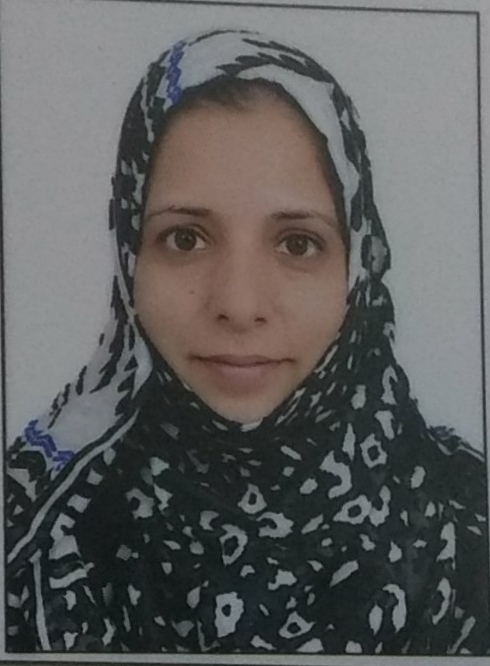PhD Cyber Security
Eligibility : Four-year graduation degree by research or two-year master’s degree in Cyber Security, Computer Science, Information Technology, Network Security, or a related discipline with a minimum of 55% marks.
- Duration : 3 Years
- Admission Criteria : Shoolini University’s multiple-choice entrance test, and assessment of research aptitude through concept note & faculty interaction.
A PhD in Cyber Security is a 3-year doctoral program at Shoolini University that teaches graduates to discover cybercrimes and safeguard confidential information stored in computers and servers. Shoolini University offers a unique opportunity to work on cutting-edge research in this field and establish a firm position in the evolving world of Computer Science.
The curriculum includes programming, network security, secure operating systems, software engineering, and software design. Graduates can learn different aspects related to IT security, data collection, software development, reverse engineering, and code analysis from globally acclaimed faculties.
The internationally acclaimed faculty at Shoolini University comes from leading Indian and global universities such as Oxford, NIH, and NCI. Many faculty members have received grants from national and international funding agencies.
Shoolini has dedicated Centres of Excellence for CSE:
- Centre of Excellence in Energy Science and Technology
- Centre for Excellence in Visionary Learning Community of India (VLCI)
The university has collaborations with renowned universities across the world for student exchange programs, faculty exchange, and more. Prominent among these are, the University of Arkansas, USA; Lanzhou University, China; University of Naples, Italy; Taipei Medical University, Taiwan; Gachon University, South Korea; South Dakota Mines University, USA.
Shoolini University is UGC Approved and NAAC Accredited.

XR/AI Research Centre
Drives innovation by offering immersive, hands-on experiences with emerging tech.

Collaboration with AWS Academy
Students can pursue industry-recognised AWS Certifications.

Research Grants
Government agencies such as DST & HIMCOSTE have provided research and infrastructural grants for advanced labs.
PhD Cyber Security Career Opportunities
- Chief Information Security Officer
- Forensic Computer Analyst
- Information Security Analyst
- Security Architect
- IT Security Engineer
- IT Security Consultant





Program Details
Top Faculty
Top Campus Recruiters
Some of the major companies that visit our campus and hire our graduates are:
Frequently Asked Questions
Why should I pursue a PhD Cyber Security from Shoolini University?
A PhD in Cyber Security at Shoolini University offers strong industry-oriented research exposure through collaborations with global leaders like IBM, AWS, Microsoft, and Ikigai Academy. Scholars also gain added training support through partners such as NASSCOM, Anudeep Foundation, and the PEC–SIEMENS Centre of Excellence, along with merit-based scholarships.
Who teaches PhD Cyber Security at Shoolini University?
PhD Cyber Security scholars at Shoolini University learn under experienced faculty mentors with strong academic and research backgrounds from IITs, NITs, IISc, IIMs, and leading global universities such as Stanford, Oxford, UPenn, and Columbia University.
What are the future opportunities after completing PhD Cyber Security at Shoolini University?
After completing a PhD in Cyber Security at Shoolini University, you can build a career in research, academia, and industry. Opportunities include roles in cyber security consulting, threat analysis, cloud security, digital forensics, and R&D in leading tech companies and security labs. Many scholars also pursue post-doctoral research or work on advanced security projects with global institutions.
How do you expose students to industry experience?
Shoolini University gives PhD Cyber Security scholars strong industry exposure through collaborations with IBM, AWS, Microsoft, and Ikigai Academy. Scholars also participate in industrial visits and expert-led sessions to gain practical insights and become career-ready.
Is practical training a part of PhD Cyber Security?
Yes. Practical research is an important part of the PhD in Cyber Security at Shoolini University. Scholars get access to 104+ advanced laboratories and 10+ Centres of Excellence. They also benefit from specialised facilities like the AI and Futures Centre and the XR and AI Research Centre for advanced, hands-on research.
What placement opportunities are available for students who have completed a PhD Cyber Security?
Through Mission 130, Shoolini University works towards 100% placements, with 30% placements in top organisations. PhD Cyber Security scholars also receive strong support through mentorship, research collaborations, and career networking opportunities.
Latest Blogs
Explore the latest insights and updates in our newest Shoolini University blogs!
Still have Queries? Contact Us
Please fill in the form and an expert from the admissions office will call you in the next 4 working hours.









.jpg)
.JPG)



.JPG)



























